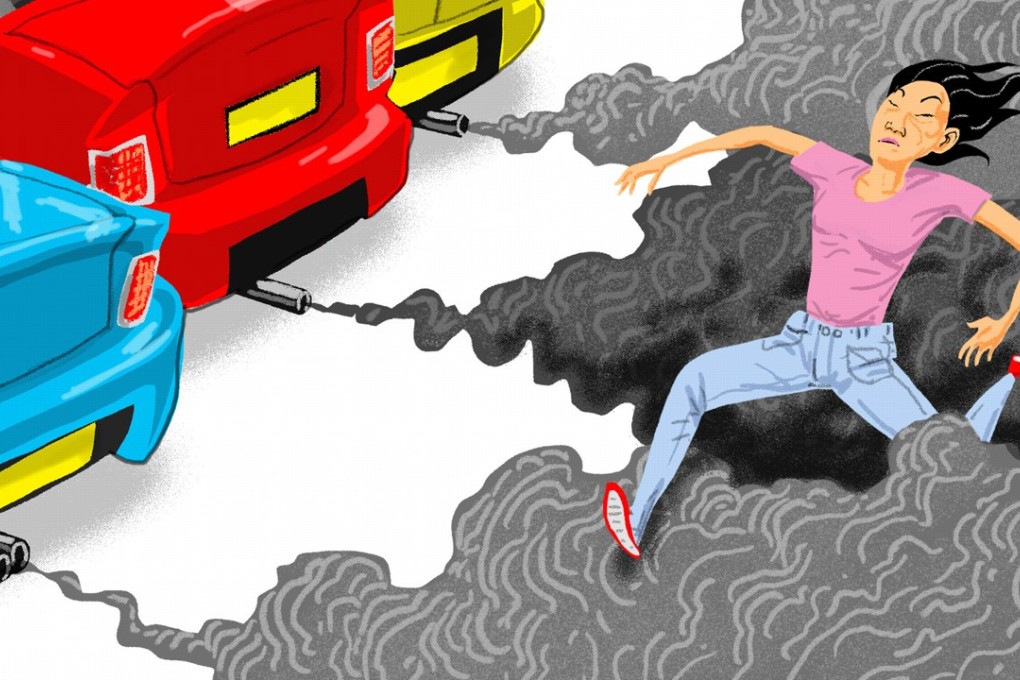When will Hong Kong tackle the health menace of congested roads?
Barry Wilson says the government is aware of the ills of roadside pollution and even the ways to reduce it, but seems unable to summon the will and courage needed to implement the solutions

Awareness of the health issues from emissions should be of particular concern in Hong Kong, where congested streets are common, not to mention the psychological stress resulting from noise and safety issues.
It’s not just exhaust fumes that are hurting us; brake dust, tyre fragments and even tiny bits of road can get into the air and these make up a similar proportion of the airborne particulate matter resulting from vehicle use as exhaust emissions. This problem won’t be solved by a switch to plug-in hybrids or electric vehicles. In a study published recently in the journal Environmental Science & Technology, the researchers described how vehicle-emitted metals such as copper, iron and manganese interact with acidic sulphate-rich particles already in the air to produce a toxic aerosol.
We need to start paying far more attention to air pollution caused by tyre, brake and road wear. Brake pad dust may come to be reduced through electric vehicle adoption because such vehicles mostly use regenerative braking, which usually needs no brake pads, but tyre and road dust will remain a problem.